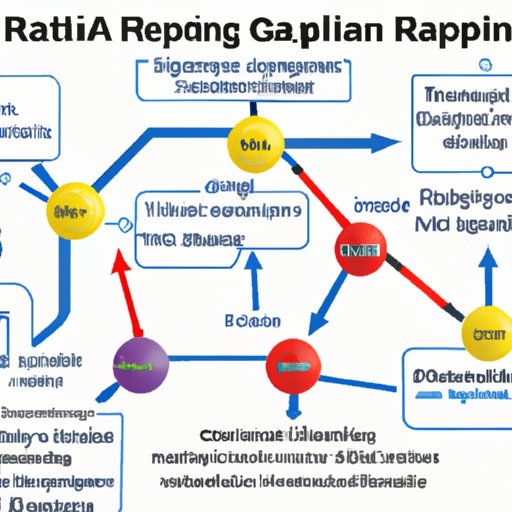Introduction
Anxiety is a mental health disorder characterized by feelings of worry, fear, and uneasiness. It can have a significant impact on one’s daily life, making it difficult to cope with everyday tasks. Fortunately, there are a variety of treatments available to help manage anxiety symptoms. One such treatment is the use of gabapentin, an anticonvulsant medication that has been found to be effective in reducing anxiety.
Gabapentin is an anticonvulsant drug typically used to treat seizures and neuropathic pain. It is also increasingly being used off-label to treat a range of mental health disorders, including anxiety.

Exploring the Use of Gabapentin for Anxiety Treatment
The use of gabapentin to treat anxiety is relatively recent. It was first approved by the U.S. Food and Drug Administration (FDA) in 1993 for the treatment of epilepsy, but has since been studied for its potential use in treating other conditions, including depression and anxiety. In recent years, gabapentin has become increasingly popular as an off-label treatment for anxiety.
In general, gabapentin is recommended as a second-line treatment option for anxiety. It is usually prescribed when other treatments, such as cognitive behavioral therapy (CBT) and selective serotonin reuptake inhibitors (SSRIs), have not been effective. The dosage and length of treatment may vary depending on the severity of the anxiety symptoms and the individual’s response to the medication.
An Overview of How Gabapentin Helps Manage Anxiety Symptoms
Gabapentin works by affecting the brain and nervous system. It binds to calcium channels in neurons, which helps to reduce nerve impulses and decrease the production of neurotransmitters associated with anxiety, such as glutamate and GABA. As a result, gabapentin can help reduce the severity of anxiety symptoms, such as panic attacks and intrusive thoughts.
In addition to its calming effects, gabapentin can also be beneficial in managing other physical symptoms associated with anxiety, such as muscle tension and headaches. It can also help improve sleep quality, which can be beneficial in managing anxiety symptoms.

Understanding the Mechanism of Action of Gabapentin in Treating Anxiety
Gabapentin affects several neurotransmitters in the brain, including glutamate, GABA, and dopamine. Glutamate is an excitatory neurotransmitter that is involved in the regulation of emotions and memory. GABA is an inhibitory neurotransmitter that slows down brain activity, helping to reduce feelings of anxiety and stress. Dopamine is a neurotransmitter that helps regulate reward, motivation, and pleasure.
Gabapentin works by binding to the alpha-2-delta subunit of voltage-dependent calcium channels, which helps to reduce the release of these neurotransmitters. This can help reduce anxiety symptoms and improve mood.
Examining the Side Effects and Benefits of Gabapentin for Anxiety
Like most medications, gabapentin can cause side effects. Common side effects include dizziness, drowsiness, nausea, vomiting, and blurred vision. In some cases, gabapentin can also cause more serious side effects, such as confusion, difficulty breathing, and changes in heart rate.
Despite the potential side effects, gabapentin can be beneficial in managing anxiety symptoms. It can help reduce feelings of worry, fear, and uneasiness, as well as physical symptoms such as muscle tension and headaches. It can also help improve sleep quality, which can be beneficial in managing anxiety.
Comparing Gabapentin to Other Medications for Anxiety
Gabapentin is often compared to benzodiazepines, a class of drugs commonly used to treat anxiety and insomnia. Benzodiazepines work by targeting gamma-aminobutyric acid (GABA) receptors in the brain and can provide rapid relief from anxiety symptoms. However, they can be habit-forming and may cause side effects such as drowsiness, confusion, and impaired coordination.
In comparison, gabapentin is less likely to cause dependence or addiction and is generally considered safer than benzodiazepines. Additionally, gabapentin can take longer to take effect, but its effects can last longer than benzodiazepines, making it a good option for long-term anxiety management.
Discussing the Research on Gabapentin’s Effectiveness for Anxiety
Research on gabapentin’s effectiveness for anxiety is limited. Several small studies have suggested that gabapentin may be beneficial in reducing anxiety symptoms, but larger, more rigorous studies are needed to confirm these findings. Additionally, the long-term safety and effectiveness of gabapentin for anxiety is not yet known.
It is important to note that gabapentin should only be used under the supervision of a physician. Self-medicating with gabapentin can be dangerous and should be avoided.

A Review of Clinical Guidelines for Using Gabapentin for Anxiety
When prescribing gabapentin for anxiety, physicians should follow clinical guidelines to ensure the safe and effective use of the medication. Physicians should start patients on a low dose and gradually increase the dose as needed. The duration of treatment should also be monitored closely, as gabapentin can cause tolerance and withdrawal symptoms if used for too long.
Patients taking gabapentin should also be monitored closely for any changes in their anxiety symptoms. If the medication is not providing sufficient relief, or if side effects become intolerable, the patient’s doctor should be notified so that the dose or type of medication can be adjusted.
Conclusion
Gabapentin is an anticonvulsant drug that is increasingly being used off-label to treat anxiety. It works by affecting certain neurotransmitters in the brain, which can help reduce anxiety symptoms. While gabapentin can be beneficial in managing anxiety, it can also cause side effects and should be used under the supervision of a physician.
In general, gabapentin is recommended as a second-line treatment option for anxiety. It can be used alone or in combination with other treatments, such as CBT and SSRIs. When prescribed, gabapentin should be monitored closely for any changes in anxiety symptoms or side effects.
Overall, gabapentin can be an effective treatment option for managing anxiety symptoms. However, it is important to remember that it should only be used under the supervision of a medical professional.
(Note: Is this article not meeting your expectations? Do you have knowledge or insights to share? Unlock new opportunities and expand your reach by joining our authors team. Click Registration to join us and share your expertise with our readers.)
